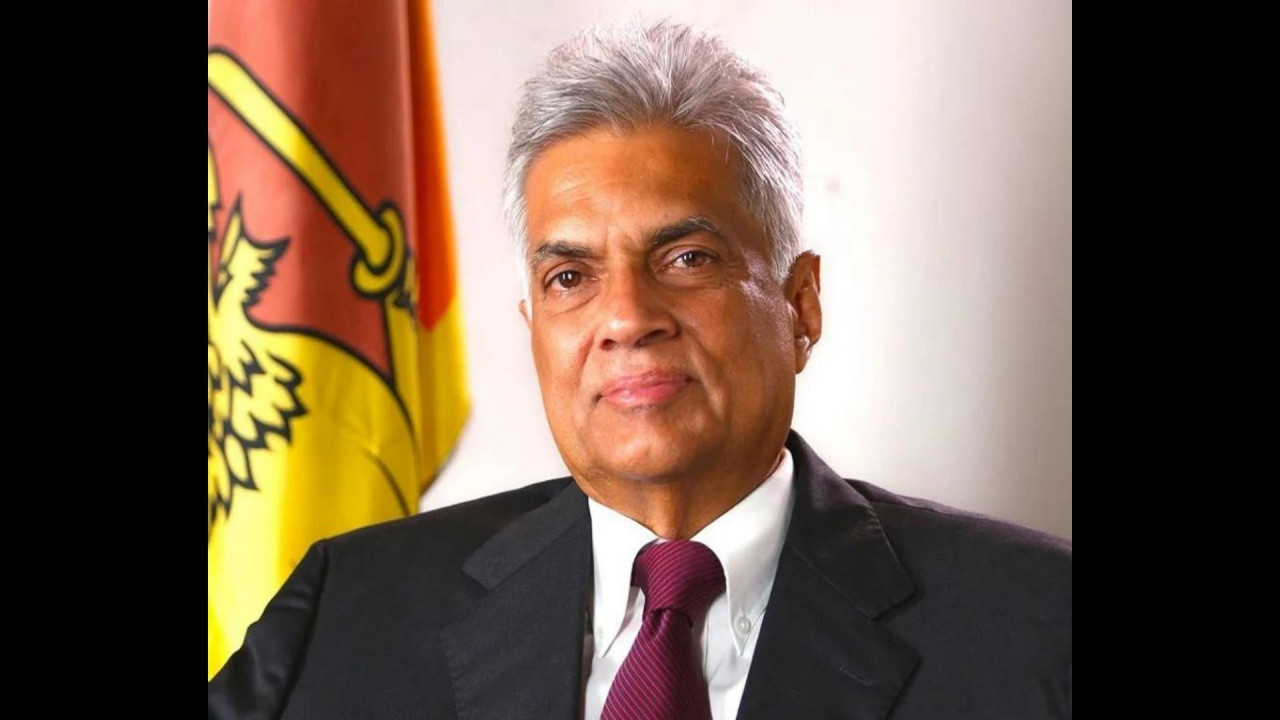While fixated on a goal, and chasing it, there will come many challenges. There are going to be times you will feel that the obstacles are far too big to overcome.
What do you do?
You can choose the effortless way, to surf along on the waves of circumstance, or focus on your objective. Crises can happen as the world remains in constant flux. Most changes are beyond our control, and we must face them with courage, and manage, as best as we can.
In managing through a crisis, we must seek out the opportunities within the situation that may help us reach our goal. Determination and focus are key.
Reflecting on the recent economic situation in our neighbouring Sri Lanka, the personality who has harnessed the crisis to his advantage is now the President. It has long been the former Prime Minister Ranil Wickremesinghe’s goal to be the President. He has finally attained the goal where, when the crisis began, it would have been unimaginable that he could rise to his current position. It is widely believed that there are more popular, and more capable, candidates who could have filled this leadership vacuum. Yet during a crisis especially, a leader has to stride forward and lead.
Wickremesinghe was introduced to politics by his uncle, the then President J.R Jayawardene, in 1977 and swiftly rose within the party ranks. He would first become Prime Minister in 1993. He would then, following year, become party leader in 1994. He has been Prime Minister six times. Yet in Sri Lanka, to officially lead the country which now has an executive presidency, you have to be President.
It is fairly clear Wickremesinghe has aspired to be president since his uncle first anointed him, by making him part of the cabinet, more than four decades ago.
Ranil contested then Presidential Election in 1999 and 2005, losing both times. In 2015, following the Presidency of Maithripala Sirisena, political manoeuvring saw Ranil put in place as Prime Minister.
For the next President election, Wickremesinghe undertook preparations in earnest. His popularity was high and he would even style himself to look more statesman like. However, unfolding events like the council elections, and the Easter Bombings, would curtail his ambitions.
It appeared that his political star had set.
The President asked him to resign as Prime Minister with MP’s from his own party joining in the calls for his resignation.
In the next Presidential election, the party ranks negotiated and convinced him to cede the presidential party ticket to Sajith Premadasa. Moreover, the aftermath of the Presidential election was more detrimental to Wickremesinghe. In the buildup to the parliamentary elections Wickremesinghe’s party presidential candidate Sajith Premadasa, who had lost the Presidential race, formed his own party and began campaigning vigorously. The campaign made a casualty of Wickremesinghe and he eventually lost his parliamentary seat as well.
Ranil Wickremesinghe’s party didn’t win a single seat through the vote. He only managed to retain a seat in parliament as a national list candidate, effectively taking over the sole UNP party seat in parliament.
When the economic crisis hit Sri Lanka, the people’s uprising was inevitable, and unstoppable. The government had to accept blame for the dire economic condition the country found itself in. The cabinet resigned and, with much reluctance, so did then Prime Minister Mahindha Rajapaksha.
The ruling Party, through which the President was still in control of the parliament, offered the Prime Ministership to opposition Leader Sajith Premadasa. Premadasa declined citing, among others, that he wanted the executive Presidency abolished with more power ceded to the Prime Minister. However, the situation in the country was far too serious. Politics as usual could not be the order of the day.
The ruling party, perhaps under the assumption that they would have more security if they found a candidate who had no weight — but who still had some “administrative” experience — would happen upon Ranil Wickremesinghe, again, as Prime Minister. The Rajapakshes were still grooming another Rajapakshe for leadership in the next election after all.
As the protest escalated, with demands for solutions to the worsening economic decline, protestors reached the end of their rope and stormed the Presidential Palace, the Prime Minister official residence, and other government offices.
This, finally, leads to the President fleeing the country before submitting his resignation.
According to the Sri Lankan constitution, if the President resigns the Prime Minister becomes President.
Enter President Ranil Wickremesinghe.
Wickremesinghe has not come to power through a public vote. In fact, his party is the weakest it has ever been with only a single seat in parliament with public acceptance of Wickremesinghe at a record low. Yet, with all these shortcomings, and with all odds stacked up against him, he finally finds himself in the position he’s been chasing for decades.
Today Ranil Wickremesinghe occupies a position the leader of opposition was offered and rejected. Had Premadasa accepted the opportunity to take the Prime Minister’s job, he could well be President today.
In the heat of the situation many may not like President Ranil Wickremesinghe. Yet, he has been part of Sri Lanka’s political equation for more than four decades. In most regards his ability to foresee issues, and find solutions, within the state mechanism will be far better than that of the majority of Sri Lankan politicians.
Never giving up on his dream seems, finally, to have worked out for Ranil Wickremesinghe. One only hopes similar fortunes smile on all the people of Sri Lanka and that their new President, and leadership that follows through him, will steer the country towards a much better future.



